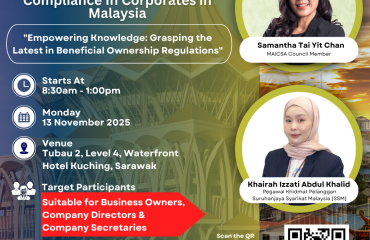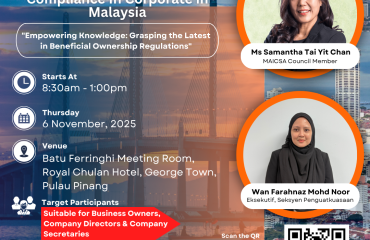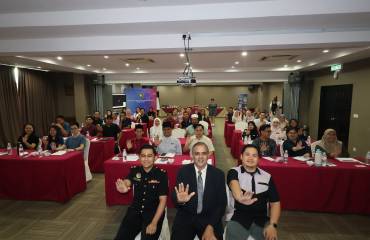PRESS STATEMENT, 4 June 2015, KUALA LUMPUR-Transparency International – Malaysia (TI-M) has noted Transparency International’s former Head of Research and staff member, Fredrik Galtung’s recent statements made at the Malaysian Integrity Institute Conference, as reported in the press, that TI’s Corruption Perception Index (CPI) may not be suitable for a country like Malaysia for reasons he has stated.
TI-M is aware that Fredrik currently represents an NGO, Integrity Action, promoting his indicator, Fix-Rate, which uses the concept as TI understands it, of finding the incidence with which transparency and accountability related problems are resolved to the satisfaction of key stakeholders.
To clarify on the CPI methodology, Transparency International (TI)’s Corruption Perceptions Index (CPI) was first developed in 1995 and is a global composite measure of perceived public sector corruption. It focuses on a range of corruption issues such as bribery, kickbacks in public procurement, embezzlement, and the effectiveness of anti-corruption efforts. With several aspects of corruption still hard to measure solely based on experiential measures, a perceived measure such as the CPI through its simplicity plays an important role in highlighting the negative impact of corruption. The sources used to compile the index and methodology has been adjusted and refined over the years and the most recent review process took place in 2012. The data sources for the CPI draws from independent institution specialising in governance and business climate analysis.
Given Malaysia has recorded a steady increase in CPI scores from 49 in 2012 to 52 in 2014, the CPI suggests improved perceptions of public sector corruption in the country. Transparency International does not believe that any one measure can fully assess a complex issue such as corruption and we therefore welcome other complementary measures that add evidence towards highlighting corruption and its impact on society.
The CPI, while one may argue is limited in scope, does capture perceptions of the extent of corruption in the public sector, from the perspective of business people and country experts.
Complementing this viewpoint and capturing different aspects of corruption, TI produces a range of both qualitative and quantitative research on corruption, both at the global level from its Secretariat and at the national level through TI’s network of National Chapters. Certainly one must admit, perception counts for something and usually is based on the experience of the subject person used in the survey.
Of course no one measure or index can fully assess a complex issue such as corruption or tell the full story of corruption in a country. However fighting corruption using the Corruption Perception Index (CPI) is generally considered to be the best available approach for Malaysia to use as a yardstick for improvement and transformation.
Another point to note is that appreciating the complexity of the problem TI adopts a multi-prong holistic approach, working on different angles and perspectives. Thus, complementing the CPI, are TI’s other research indices which include: Global Corruption Barometer (GCB), Bribe Payers Index (BPI), Global Corruption Report (GCR), National Integrity System Assessments (NIS) and Transparency in Corporate Reporting.
As a case in point TI-M recently released the findings of the 2014 Malaysian Corruption Barometer (MCB), which surveyed the public experiences and views on corruption and how to combat the issue last May. The MCB also surveyed citizens’ perception on the government’s effectiveness in tackling corruption.
Corruption is a disease like cancer, treatment (anti-corruption initiatives) will likely to be effective by early detection. Hence, TI-M welcomes any new and complementary measures that can add evidence towards highlighting corruption and its impact on society.
After all we should all share the same vision of “A Nation that is Free of Corruption” and one thing is for sure – more needs to be done!
End.
Dato’ Akhbar Satar
President,
Transparency International Malaysia
Transparency International-Malaysia is an independent, non-governmental and non-partisan organisation committed to the fight against corruption.
Website: www.transparency.org.my







